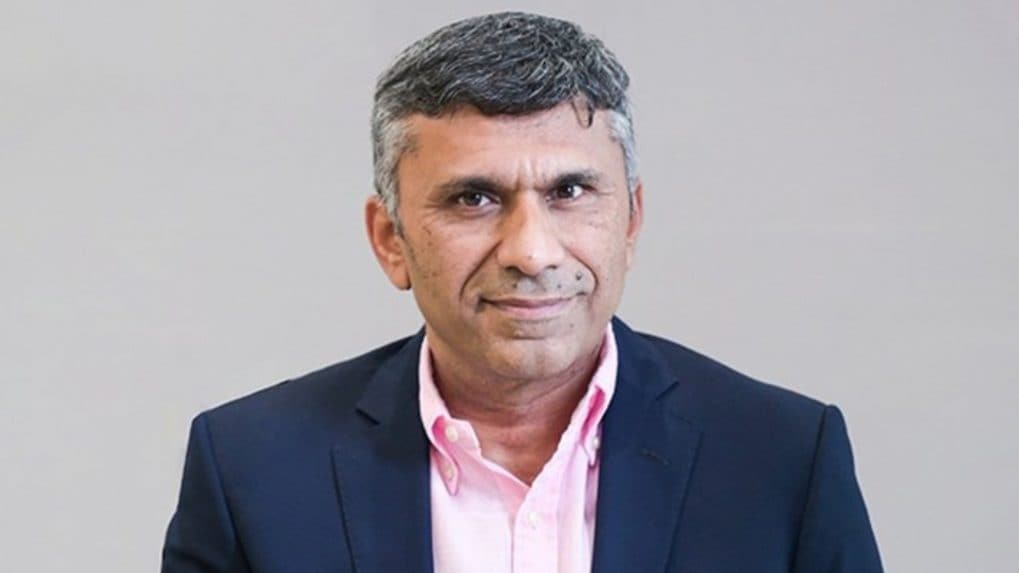How it Works
WPP, Havas, Omnicom: Are advertising’s biggest holdcos recasting agencies as AI Operating Systems?

India’s liquor industry remains captive to a patchwork of state taxes and regulations, and a unified national framework appears distant, said Praveen Someshwar, the chief executive of Diageo India. But the country’s largest spirits maker is pressing ahead with a strategy built on premium brands, innovation and new drinking occasions to capture a rising generation of consumers.
During an interaction in Bengaluru, Someshwar emphasized that India’s liquor industry must accept the fragmented tax structure as a permanent feature. He noted that while some states tighten regulations, others open up opportunities, requiring companies like Diageo to maintain a constant balance across markets.
On the prospect of a unified national liquor policy, he said the decision ultimately rests with policymakers but indicated that such a shift is unlikely in the foreseeable future. For now, alcohol will remain under state-level control, leaving the industry exposed to frequent changes in excise duties and licensing fees.
Even as policy remains fragmented, Diageo is doubling down on India’s accelerating shift toward premium spirits. The company has guided for double-digit growth in its “premium-and-above” segment, which includes international Scotch brands such as Johnnie Walker, Black Dog, and Black & White, as well as Indian-made labels like Signature and McDowell’s.
The push is part of a larger global strategy, but one that has particular resonance in India, where rising incomes and younger demographics are fueling demand for better quality and brand-led experiences. According to the company, its premiumisation agenda revolves around three anchors: occasions, innovation and expanding its premium repertoire
One element of the strategy focuses on “occasions” — tailoring brands to fit specific consumer moments. McDowell’s, one of the country’s most widely recognized labels, is being recast as a “powerhouse brand” through innovation and music-led cultural experiences like the Yaari Jam. Signature is aligning with fashion and sustainability, through collaborations with start-ups like Ziro and Thaely, positioning the whisky as a symbol of “conscious consumption.”
The company is also investing in “elevated durbar experiences” and immersive activations designed to make premium whiskies part of celebrations that range from weddings to at-home gatherings. Flavor labs in Bengaluru and Goa are experimenting with native ingredients and local craft processes, tapping into India’s culinary diversity to create distinctive spirits.
Craft spirits and experiences, executives at Diageo acknowledged, are unlikely to achieve mass scale. But they argued that the strategy and segment plays a critical role in offering consumers distinctive experiences, a push that Someshwar said is central to the company’s marketing and innovation strategy.
Diageo India is ramping up its presence in the country’s burgeoning craft spirits market through strategic investments and acquisitions. In 2022, the company took a 22.5 percent stake in Nao Spirits & Beverages, the maker of premium gins such as Greater Than and Hapusa, signaling a push into India’s growing demand for high-end, artisanal liquors. Building on that foothold, Diageo announced plans to acquire nearly all of Nao Spirits in a ₹130 crore deal, aiming to raise its stake to more than 97 percent by June 2025, with full ownership expected by 2026.
The moves are part of a broader strategy to cultivate the craft spirits ecosystem. Diageo has also invested ₹45 crore in a craft and innovation hub in Goa, designed to produce 20,000 cases a month and support 250 local jobs while fostering startup innovation. For Diageo India, these initiatives represent a calculated effort to capture a premium segment that continues to grow amid evolving consumer tastes.
At the upper end of the portfolio, Diageo is “firing up iconicity” on Johnnie Walker with innovation and cultural tie-ins, while recruiting a new base of Scotch drinkers through more accessible brands such as Black & White. For malt lovers, the company is curating a portfolio of global single malts and limited editions, including its new “Double Oak Barrel X Series”
While state excise swings continue to complicate pricing and availability, Diageo is attempting to insulate itself through scale and consumer loyalty. Its advocacy with regulators is ongoing, but Someshwar signaled that industry players must accept the structural nature of India’s federal liquor framework. Someshwar stressed that Diageo approaches regulatory engagement constructively, acknowledging that change will not happen overnight but emphasizing that the company continues to work on the issue over the long term.
The approach highlights the paradox of the alcohol market: enormous potential, but layered with complexity. Diageo’s bet is that by embedding its brands into cultural occasions and upgrading consumers to higher-value spirits, it can deliver growth even without the clarity of a national policy.
From purpose-driven work and narrative-rich brand films to AI-enabled ideas and creator-led collaborations, the awards reflect the full spectrum of modern creativity.
Read MoreThe Storyboard18 Awards for Creativity have unveiled a Grand Jury comprising some of India’s most influential leaders across advertising, business, policy and culture, positioning it among the country’s most prestigious creative award platforms.